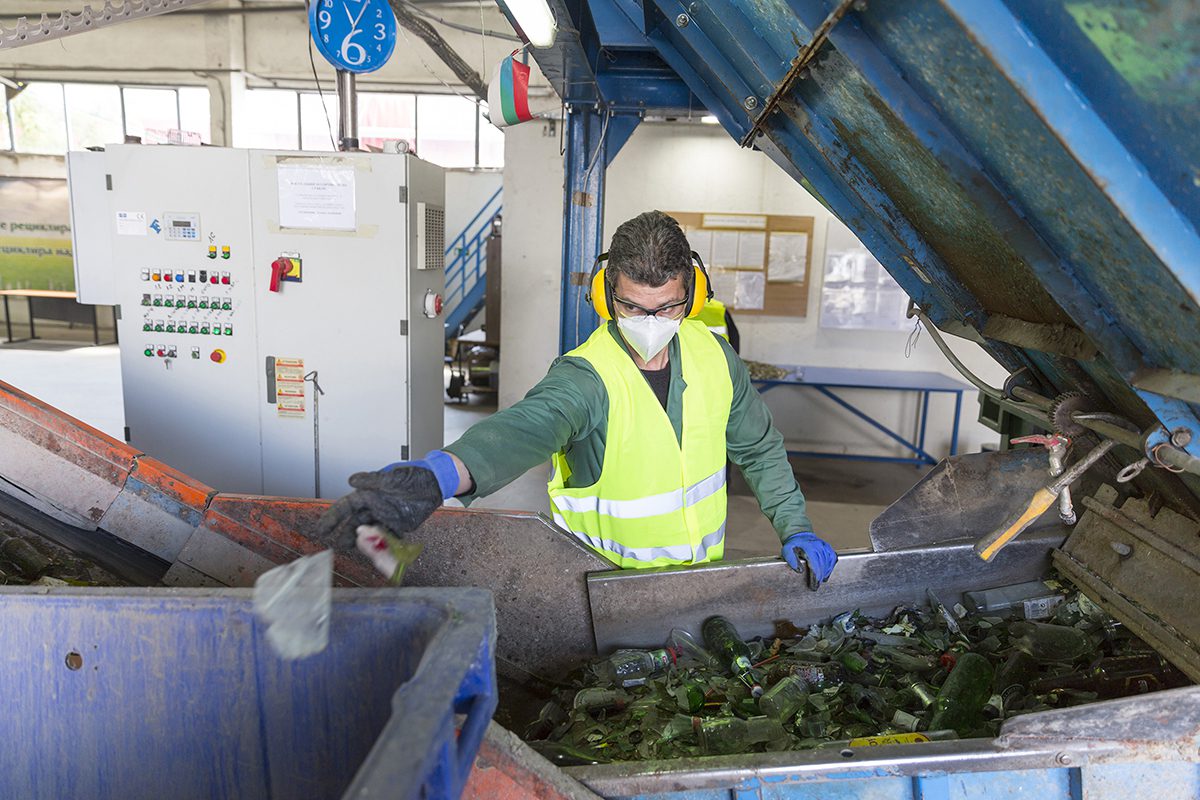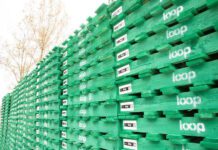
- Switzerland, Sweden and Denmark have succeeded in recovering over 98% of their municipal waste on average over the last five years
- Germany is now recycling half of its waste (50%), having improved year-on-year for the last five years
- Despite a 12% reduction over the last five years, Turkey is still sending 88% of its waste to landfill
- When you consider both waste production and waste recovery, the leading nations are Japan, Belgium and Sweden.
Waste production continues to increase worldwide, with groups such as The World Bank predicting it will increase a further 50% by 2050. Data compiled by packaging retailer RAJA – presented in October – offers a picture of how well different countries are performing in the management of waste.
The group has drawn on data from the OECD on the treatment of countries’ municipal waste, delving into 29 countries that had data available over five years. The resultant picture details which countries are making positive movements in waste recovery and the minimisation of waste per capita. And it asks: which countries are making conscious efforts with both – and what can we learn from these nations?
Some key findings from the data are documented below. Please note, any countries with a * had data up to 2017, rather than 2018:
6 of the 29 countries have recovered an average of 95% of municipal waste over the last five years:
Switzerland (100%)
Sweden (99%)
Denmark (98%)
Belgium (98%)
Netherlands (98%)
Austria (97%)
Waste recovery within municipal waste includes recycling, composting, and incineration with energy. The OECD warns against comparing countries with each other as methods of surveying municipal waste vary widely. Instead it suggests looking at each country’s individual statistics – and these seem to reveal increasingly strong rates of recovery.
Looking at an average over the last five years, Switzerland is leading with a recovery rate of 100%. However, this is not necessarily as straightforward as it seems: With 718 kilos of waste per capita, they are still producing more waste than all the other countries examined, excluding the Netherlands (811), Denmark (780) and the USA* (738). Additionally, recycling and composting are generally seen as ‘better’ ways of recovering waste, yet almost half (47%) of Switzerland’s recovery over five years is through incineration with energy.
Germany is improving year-on-year with recycling rates averaging at 49%, while Lithuania has tripled its composting rates over the last five years
Those with high rates of recycling over five years were: Germany (49%), Slovenia (47%) and Belgium (34%). Slovenia has seen growth in recycling rates over the last five years, by an impressive 24 percentage points
Germany’s upward trajectory is attributed to a number of national initiatives. Strong government policies are playing a role, as are citizens that embrace this lifestyle. The Green Dot system is just one of these, where manufacturers and retailers pay for a green sticker on products, showing that a fee has been paid to fund its recycling. They also use several different bins to enhance recycling efficiency, including black for general waste, blue for paper, yellow for plastic, white for clear glass, green for coloured glass and brown for composting.
The countries recording high rates of composting over five years were: Austria (32%), Netherlands (28%), Switzerland (21%), Italy (21%) and Luxembourg (20%). Lithuania has seen the biggest improvement over five years – more than tripling its composting rates.
Lithuania stands out in the composting game and has recorded a 32-percentage-point reduction in landfill (from 60 to 27%), almost double other countries’ reduction efforts. One contributor is its regional waste management centres. The centres provide households with free composting boxes, and teach homeowners about how to separate food and kitchen waste, making sure composting is engrained in day to day life.
Landfill laggards and leaders
Turkey is still sending an average of 93% of its waste to landfill.
With landfill considered the worst form of waste disposal, it’s important that countries shift away from it – and quickly. The good news is that 23 of the 29 countries in the survey seem to have reduced landfill over five years, although there is still widespread foot-dragging. In fact, only ten countries have improved it by more than 5%.
The biggest reductions in landfill have came from Lithuania, Poland, Finland, the UK and Slovakia with respective decreases of 32, 17, 17, 13 and 13 percentage points.
Looking at the last five years, Turkey (93%), Greece* (83%) and Latvia (69%) are still sending high volumes of waste to landfill on average. Estonia’s landfill usage has increased by 16 percentage points over the last five years.
While it’s now illegal in the UK to send non-recoverable materials to other countries, there are still glitches in this system around the globe. Many wealthier countries tend to send ‘recyclable’ waste overseas, yet receiving countries report this waste as unrecyclable. This causes the landfill statistics in receiving countries to soar while the wealthier countries are able to keep theirs low.
When waste minimisation and waste recovery are both taken into account, Japan stands out as a leader.
While waste recovery clearly needs to become an established part of life across the world, it would be even better if we could all produce less waste in the first place. Waste per capita production is at its worst, according to the study, in the Netherlands, Denmark and the USA*.
Poland, the Czech Republic and Japan appeared to be the leaders (of the countries surveyed) in generating low amounts of waste. And, crucially, only six of the 29 countries have achieved waste reduction over the period in question: Hungary, Belgium, the UK, the Netherlands, Germany and Switzerland.
When you consider both waste minimisation and recovery, however, one country stands out as a leader. Japan’s motto is “Mottainai“, which translates as “don’t waste anything worthy”. It’s clear that the country is working to follow all three R’s of reduce, reuse and recycle, as numbers show has both low waste production, and recovery rates of 93%. Next best was Belgium, and then Sweden. Belgium has strong performance on both counts, while Sweden is able to keep 99% of its waste out of landfill (yet it produces slightly more waste than these two countries).







